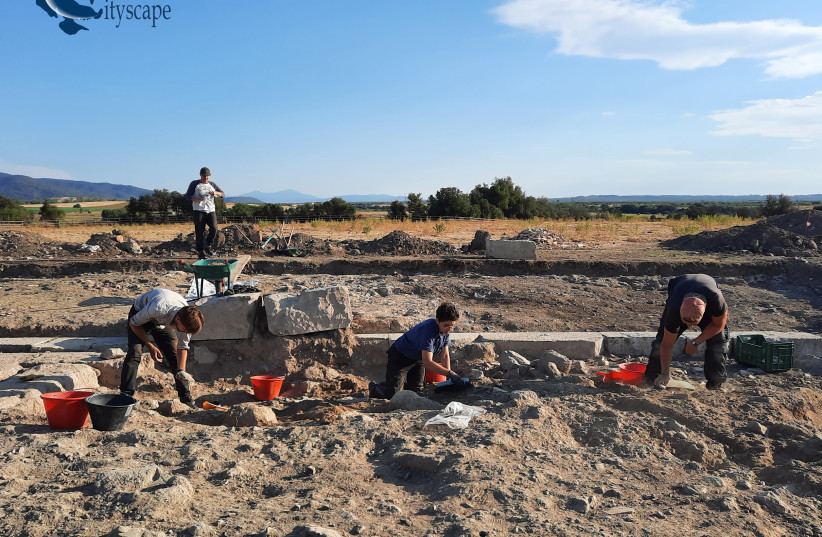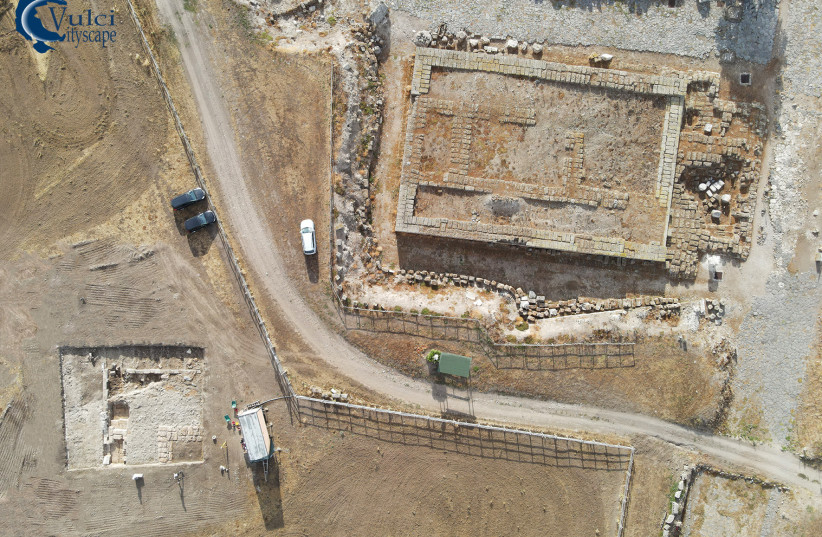2,500-year-old Etruscan temple discovered in Vulci, Italy
The temple was discovered during the Vulci Cityscape Project which intended to learn about the settlement strategies and urban structures of the eponymous city,
https://www.jpost.com/archaeology/article-722208
An Etruscan temple dating back to the fifth century BCE was recently discovered in the ancient city of Vulci in Latium, Italy, the University of Freiburg announced on Thursday.
The building measures 45x35 meters and is located west of a sacred structure called Tempio Grande.
An initial examination of the rocks in the foundation of the temple, as well as artifacts that were found there, enabled the researchers, led by Dr. Mariachiara Franceschini of the University of Freiburg and Paul P. Pasieka of the University of Mainz, to determine that the temple was built around the end of the sixth or the beginning of the fifth century BCE.
“The new temple is roughly the same size and on a similar alignment as the neighboring Tempio Grande, and was built at roughly the same Archaic time,” said Franceschini. “This duplication of monumental buildings in an Etruscan city is rare, and indicates an exceptional finding,” noted Pasieka.
What was the significance of the ancient city of Vulci?
The University of Freiburg noted that the researchers first discovered the temple while they were working on the Vulci Cityscape Project, intended to learn about the settlement strategies and urban structures of the eponymous city, adding that in pre-Roman times, Vulci was one of the most important urban centers in the region.
 Archaeologists
and other colleagues uncover the walls of the Etruscan temple in Vulci.
(credit: MARIACHIARA FRANCESCHINI VIA VULCI CITYSCAPE)
Archaeologists
and other colleagues uncover the walls of the Etruscan temple in Vulci.
(credit: MARIACHIARA FRANCESCHINI VIA VULCI CITYSCAPE)“We studied the entire northern area of Vulci, that’s 22.5 hectares, using geophysical prospecting and Ground Penetrating Radar,” Pasieka said. “We discovered remains from the city’s origins that had previously been overlooked in Vulci and are now better able to understand the dynamics of settlement and the road system, besides identifying different functional areas in the city.”
In the future, the researchers intend to study the architecture of the temple and the different phases of use further to learn more about the religion and social structures of Vulci and the daily lives of its citizens.
“Our knowledge about the appearance and organization of Etruscan cities has been limited until now,” Franceschini said, adding that “The intact strata of the temple are offering us insights into more than a thousand years of development of one of the most important Etruscan cities.”
Discovery of ancient bronze statues in Italy could 'rewrite' history
2,000-year-old bronze statues discovered in ancient Italian thermal spring


No comments:
Post a Comment
Stick to the subject, NO religion, or Party politics